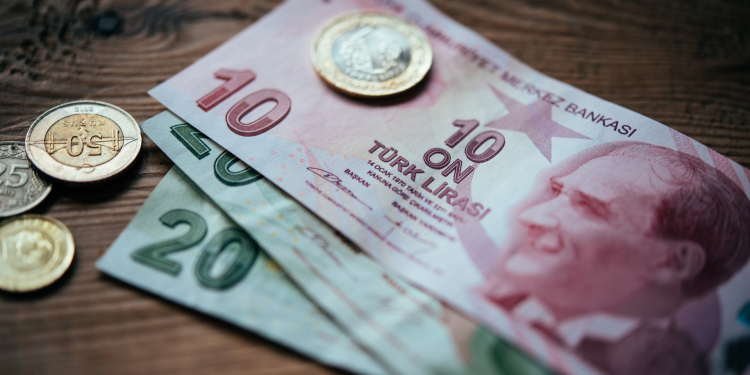The FINANCIAL — Turkish lira dropped to record low against dollar as state bank interventions could not reassure investors. The last lowest point was hit in May. Meanwhile, heavy interventions late last week drained the supply of local currency, government-owned lenders flooded the market with foreign exchange, selling at least $2.5 billion. The central bank’s gross currency reserves have dropped by more than a third this year to $49.2 billion as of July 17.
The lira tumbled to a record low against the dollar, buckling after Turkey’s central bank spent billions of dollars in a months-long offensive to prop its currency up. The currency dropped 3.2 per cent to a low of TL7.2781 against the dollar on Thursday, bursting below the record last set in May. The second day of intense selling comes after investors were rattled by signs of dysfunction in the country’s money markets this week. The costs of borrowing the currency overnight shot to near record highs on Tuesday, prompting analysts and investors to brace themselves for fresh declines in the lira. The currency has lost more than 18 per cent of its value against the dollar this year, according to The Financial Times.
The cost of borrowing Turkish liras overnight in the offshore market surged to the highest level since March 2019 after heavy interventions late last week drained the supply of local currency. The overnight forward-implied yield on the lira jumped as much as 1020 percentage points to 1050% on Tuesday as dollar sales executed by state banks, designed to prop up the lira, began to settle after a public holiday. Last week, government-owned lenders flooded the market with foreign exchange, selling at least $2.5 billion. Investors who took the other side of those trades now have to deliver the local currency, Bloomberg reported.
The latest supply squeeze followed heavy interventions in the currency market last week. Dollar sales executed by state banks to prop up the lira began to settle after a public holiday, draining the supply of local currency and pushing the overnight borrowing rate in the offshore market to its highest level in 17 months. To deter short sellers, foreign investors have essentially been barred from borrowing from local banks and don’t have access to Turkish central bank funding. As a result, those without liras on hand have to borrow the currency in the offshore market — where supply is limited — driving up the rate. The central bank’s gross currency reserves have dropped by more than a third this year to $49.2 billion as of July 17. Including gold, they stand at $89.5 billion. Of this, more than $54 billion is borrowed from local lenders through short-term swaps, according to the latest available data through the end of June, according to Al Jazeera.
During a lira sell-off in March and April last year – when the overnight swap rate hit 1,200% – Turkish authorities directed banks to curb trading in the London market and have continued to tighten such rules this year. The offshore market had remained largely dormant until Tuesday when rates spiked, Refinitiv data showed. The lira touched a record low against the dollar in May and briefly traded beyond 7.0 last week, as reported by Reuters.
Coronavirus crisis also hit USA’s GDP. Real gross domestic product (GDP) decreased at an annual rate of 32.9 percent in the second quarter of 2020, according to the “advance” estimate released by the Bureau of Economic Analysis. In the first quarter, real GDP decreased 5.0 percent. Department of Labor released the data which shows that another 1.4M Americans filed unemployment claims last week. It is an increase of 12,000 from the previous week’s revised level. Read more.

































Discussion about this post